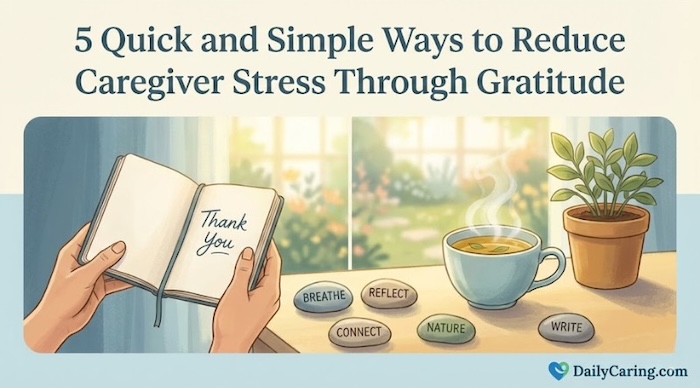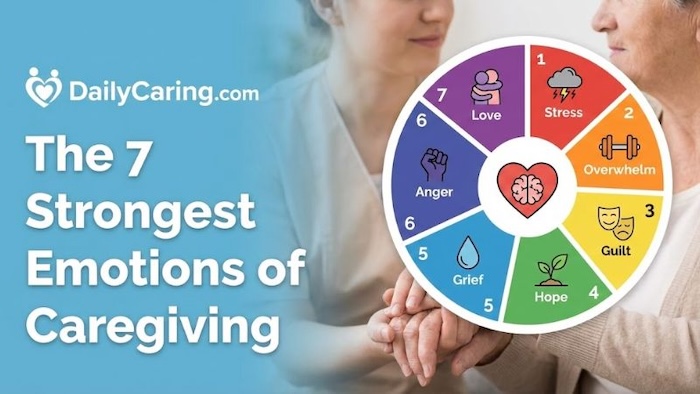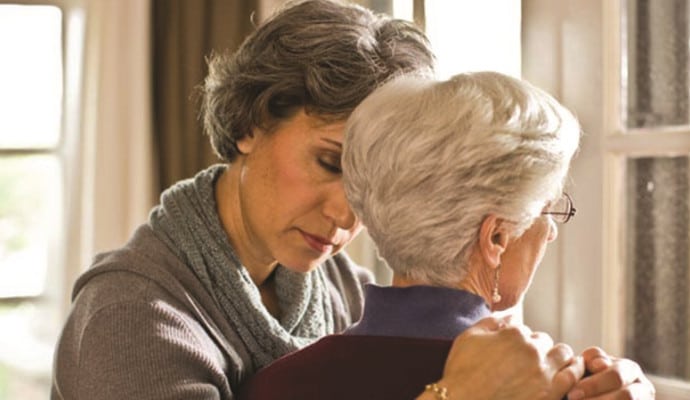The relentless demands of caregiving can be overwhelming, leaving you feeling depleted and stuck in a cycle of stress. Yet amid daily challenges, a simple yet profound tool can make a decisive shift in perspective: gratitude.
While it may seem counterintuitive when you're feeling exhausted, intentionally focusing on moments of thankfulness can be a surprisingly effective way to reduce anxiety, improve your mood, and replenish your emotional reserves.

This article explores practical, accessible ways to weave gratitude into your caregiving journey, offering a source of positivity to help you navigate difficult days and find more joy in the meaningful role you play.
Gratitude is a Quick and Easy Way to Reduce Caregiver Stress
A quick, easy, and effective way to reduce caregiver stress is to practice gratitude.
Gratitude is about noticing that there are some good things in your life, no matter how difficult things get.
Calling attention to the positives helps you shift perspective and recognize that things are not always completely horrible.
It doesn’t matter if you do it for 2 seconds or 5 minutes; adding gratitude to your life is an effective way to reduce stress, protect from burnout, and improve health and quality of life.
To make it easier to find a technique that works for you, try some suggestions from Lifehack’s fantastic list of 40 quick and simple ways to add gratitude into everyday life.
Here, we share our top 5 picks from the list that are especially helpful for caregivers.
The Top 5 Ways to Add Gratitude to Your Day
- Keep a gratitude journal and add to it when you can – ideally once a day
- Notice the beauty in nature each day – even if you can’t take a quick walk outside, looking out the window is a way to refresh your senses
- Avoid negative media and movies with destructive content – life is stressful enough, try not to add extra negativity to your day
- When you think a negative thought, try to see the positive side in the situation – flip it around to play “devil’s advocate” and explain why it’s not that bad
- Post quotes and images that remind you to be grateful around your house – something as simple as writing your favorite quote or even just “You’re awesome, and you’ve got this” on a post-it note and sticking it on your bathroom mirror can give you a boost
Final Thoughts About Reducing Caregiver Stress Through Gratitude
Integrating gratitude into your caregiving routine is not about denying the very real hardships you face, but about creating a balanced perspective that makes those challenges more manageable. The ideas presented here are simple starting points; a toolkit you can turn to when stress mounts, helping to reframe your experience and uncover moments of light.
By making this practice a consistent part of your life, you can build greater resilience, improve your overall well-being, and rediscover a sense of purpose and connection. Remember, caring for yourself with kindness and appreciation is not a luxury; it is the essential foundation that allows you to continue providing compassionate care for your loved one.
Next Steps: Get 40 simple ideas for noticing the positive things in life and reducing caregiver stress at Lifehack
Recommended for you:
- 14 Practical Ways to Relieve Caregiver Stress
- 8 Ways to Relieve Caregiver Anxiety and Improve Well-Being
- 3 Ways to Prevent Caregiver Stress and Burnout
About the Author

Connie is the founder of DailyCaring.com and was a hands-on caregiver for her grandmother for 20 years. (Grandma made it to 101 years old!) She knows how challenging, overwhelming, and all-consuming caring for an older adult can be. She also understands the importance of support, especially in the form of practical solutions, valuable resources, and self-care tips.














Hello,
I have a few comments on the gifts for seniors list. Some of the items a person will not need in duplication, so caution others who may be giving gifts to check with Caregiver/Family to see if that item is already present. I have one elderly person who likes jigsaw puzzles and one who does not, the same with crossword puzzle books, so interest level is something to note as well.
I tried to think of consumable goods-something that will not become a dust-collector in the elderly person’s home.
Thanks.
Great tips Elizabeth! It’s a smart idea to check first to make sure you’re not buying duplicates or cluttering the house with things they definitely don’t like.